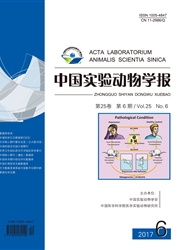

 中文摘要:
中文摘要:
目的为探索一种组织工程化牙齿异位培养的理想环境,检测全牙胚、牙乳头及成釉器在肾被膜环境下的发育能力。方法利用剖腹产取出胚龄18 d的大鼠胎儿,显微外科分离牙胚,并将之进一步分为牙乳头和成釉器两部分。使用特制玻璃移植管分别将获得的全牙胚、牙乳头及成釉器植入异体大鼠肾被膜下。2周后取出培养物,HE染色观察其发育情况。结果在肾被膜微环境下,全牙胚在肾被膜下发育良好,形成较为完整的牙齿形态和结构,单独的牙乳头可以形成牙本质,而单独的成釉器无法形成特定形态的牙冠,也无法分化成釉质。结论证明肾被膜下是牙齿异位生长的适宜环境,ED18后成釉器发育仍然受到牙乳头调控,与此相反,牙乳头发育不再依赖成釉器的信号。
 英文摘要:
英文摘要:
Objective To explore a suitable culture environment for tissue-engineered teeth and to evaluate the developmental ability of full tooth germs,dental papilla and enamel organ in sub-renal capsule space.Methods Rat fetus at embryonic day 18(ED18) were obtained by Cesarean section.The full first molar germs were separated from fetus,and to separate them further into enamel organ and dental papilla by microsurgery.Subsequently,full tooth germ,enamel organ and dental papilla were transplanted into sub-renal capsule tissue of adult Sprague-Dawley rat by special glass tube and col-lected at 2 weeks after grafting.Paraffin sections were prepared and the histological changes of transplants were examined with HE staining.Results Full tooth germs were well developed into normal shape and structure in the rat sub-renal capsule microenvironment.The dentin-pulp complexes were formed by separated dental papillas.However,the separated enamel organs were not well developed,both tooth crown and enamel were not formed in this group.Conclusions The re-sults of this study indicate that renal subcapsular space is a suitable culture environment for allotransplantated teeth devel-opment.After ED18,enamel organ development is still regulated by signals from dental papilla,but in contrast,dental pa-pilla development is no longer dependent on the signals from enamel organ.
 同期刊论文项目
同期刊论文项目
 同项目期刊论文
同项目期刊论文
 期刊信息
期刊信息
